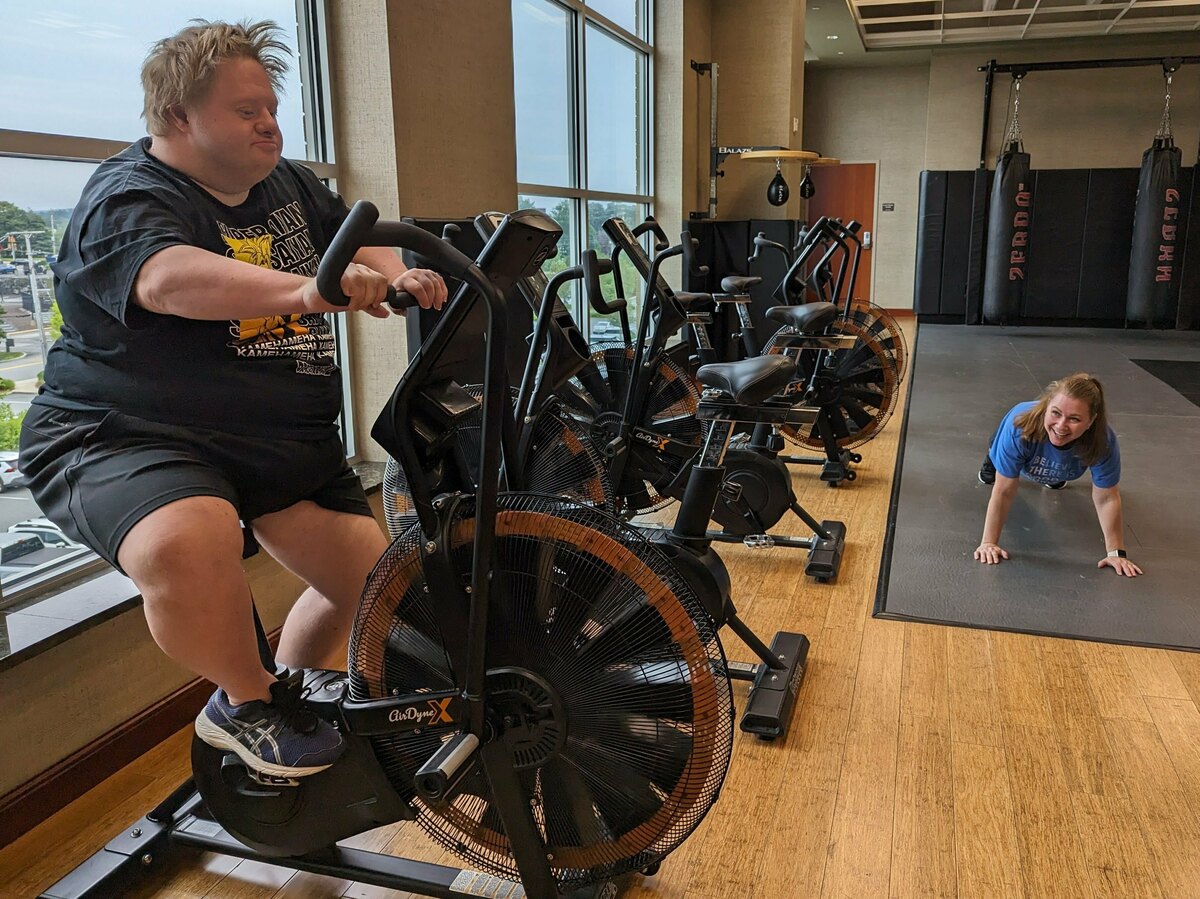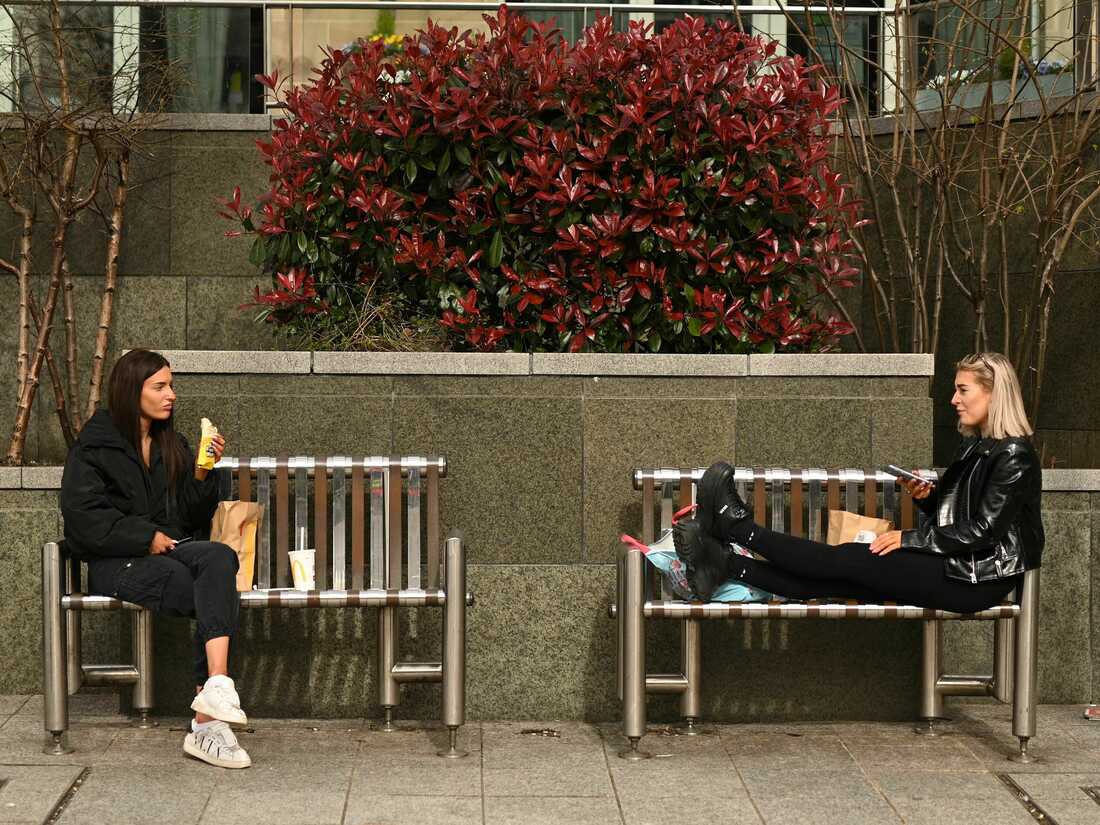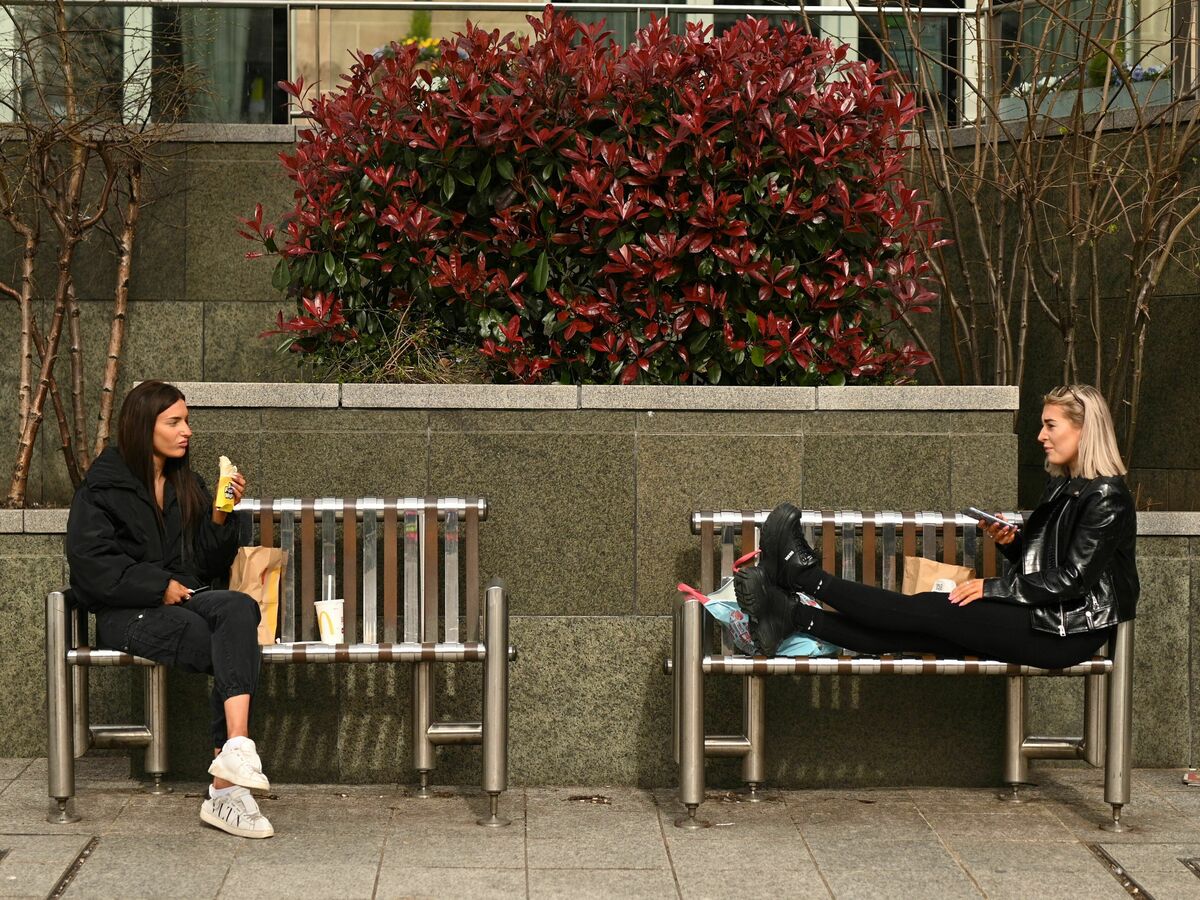
Jason Silverman, on the train bike, and his pal Melissa Mills go to the health club collectively once they hang around. The pair are a part of the Friendship Challenge in Framingham, Massachusetts.
Priyanka Dayal McCluskey/WBUR
cover caption
toggle caption
Priyanka Dayal McCluskey/WBUR

Jason Silverman, on the train bike, and his pal Melissa Mills go to the health club collectively once they hang around. The pair are a part of the Friendship Challenge in Framingham, Massachusetts.
Priyanka Dayal McCluskey/WBUR
On a typical morning, Jason Silverman lounges at house in his mattress for hours, with the TV on and the quantity turned up. Generally, this day by day routine can get lonely.
So he seems to be ahead to the times his pal, Melissa Mills, picks him up and takes him to a health club in Framingham, Massachusetts, the place they train collectively.
Silverman, 38, has Down syndrome. Speaking is troublesome for him, however he communicates by smiling, sighing and main Mills by the arm. She’s change into aware of his routine: Often they hit the treadmill first, then bike a bit earlier than a lunch break and eventually, a swim within the pool.
“We snicker and don’t fret about something once we’re collectively,” says Mills, 43. “There is not any stress; there is no stress. We’re simply right here to hang around.”
Fostering connection
This connection started in a considerably uncommon manner. Mills, who works in human sources for the state police, volunteers with a small however rising initiative referred to as the Friendship Challenge. This system is designed to cut back social isolation — significantly for folks with disabilities or psychological well being circumstances — by serving to them construct relationships with others.
“Individuals are so remoted and so lonely, and that has such a detrimental affect on their high quality of life,” says Jeff Keilson, senior vice chairman of strategic planning at Advocates, the Framingham-based human providers company that runs the Friendship Challenge. “If there’s ways in which we may assist folks by connecting them with others, then we completely ought to do this.”
Profound results on bodily and psychological well being
This work is rooted in additional than an ethical crucial to assist folks.
A rising physique of analysis exhibits loneliness has profound implications for bodily and psychological well being. People who find themselves socially disconnected have a 29% increased danger of coronary heart illness, a 32% higher danger of stroke and a 50% elevated danger of dementia for older adults. Loneliness can improve the chance of untimely demise as a lot as smoking 15 cigarettes a day, based on a latest advisory from the U.S. Surgeon Basic Vivek Murthy’s workplace.
The nation is contending with an “epidemic of loneliness,” based on that report — and the medication to deal with the issue is social connection.
The Friendship Challenge launched in the course of the COVID pandemic and was based on the premise that growing social connection may enhance folks’s lives and even scale back hospital visits. It is too early for knowledge to point out whether or not the latter is occurring.
Keilson says folks typically find yourself on the hospital as a result of they’re lonely. “By addressing isolation, we may truly have an effect on folks’s use of emergency rooms,” he says.
‘Apparent intervention’ for pervasive downside
Folks with disabilities are among the many populations extra more likely to expertise loneliness, however the issue is pervasive. About half of American adults reported feeling lonely in recent times — and that was earlier than the pandemic triggered shutdowns and security measures that additional remoted folks, based on the surgeon common’s report.

A socially distanced out of doors lunch in March 2020. Even earlier than the pandemic, isolation emerged as a rising menace to well being.
OLI SCARFF/AFP by way of Getty Pictures
cover caption
toggle caption
OLI SCARFF/AFP by way of Getty Pictures

A socially distanced out of doors lunch in March 2020. Even earlier than the pandemic, isolation emerged as a rising menace to well being.
OLI SCARFF/AFP by way of Getty Pictures
People even have fewer shut pals than they used to, says Daniel Cox, senior fellow on the American Enterprise Institute, who research friendship. They usually discuss to their pals much less typically.
Cox says he is heartened to see extra well being care leaders deal with the significance of friendship.
“If the purpose is to assist folks stay longer, more healthy lives, this can be a fairly apparent intervention,” he says.
It takes effort and time to nurture friendships, he notes. “[Instead of] placing all the accountability on the individual and say: ‘You have to do all the pieces your self’ — it is truly good to have establishments to step in and assist out, as a result of they’ll leverage quite a lot of sources.”
Even doing laundry collectively counts
The Friendship Challenge has enrolled dozens of individuals up to now — ranging in age from their 20s to their 70s — with plans to develop. Challenge leaders are working with some well being insurers, together with Tufts Well being Plan and UnitedHealthcare, to broaden the initiative past folks with disabilities and psychological well being circumstances.
The volunteers are background-checked and typically fingerprinted earlier than they meet their new pals. Volunteer coordinator Maryellen Killeen says she encourages the pairs to begin with a easy outing.
“I recommend a stroll, hanging out at house, enjoying a sport, going to the library,” she says. “A variety of them meet at espresso outlets.”
Different pals take purchasing journeys, or do laundry collectively.
For Mills and Silverman, health club visits have change into a month-to-month ritual.
The pair met earlier this 12 months and obtained alongside instantly. Silverman’s mom and first caregiver, Stephanie Lynch, says he appears happier and extra assured since he began spending time with Mills.
“It is simply human — folks want companionship. They should really feel a part of one thing,” she says.
Friendship on the cellphone
Connections can develop even on the cellphone. That is the considering behind the Telephone Buddies program at Commonwealth Care Alliance, or CCA, a Boston-based well being insurer for seniors and other people with vital medical wants. In 2020, the insurer started recruiting its personal administrative staff as volunteer pals. Now, CCA can be working with Advocates, the human providers company in control of the Friendship Challenge, to assist extra of its members make connections.
Chris Palmieri, CCA’s chief government, stated these social interactions are designed to assist members keep more healthy and keep away from pointless hospital visits.
And whereas the cellphone chats are usually not medical doctors’ appointments, medical points typically come up. If this occurs, the volunteer pal is ready to relay messages to the member’s care workforce. “If we’re having a reference to anyone,” Palmieri says, “we [can] decide up some cues on the cellphone calls. We will refer them into care that may have fallen by means of the cracks.”
Michelle Somerville, a top quality specialist at CCA, volunteers about quarter-hour each Tuesday to name Ida Rodriguez, a CCA member in Lawrence.
Regardless of their distance — they stay 100 miles aside and have by no means met in individual — the 2 have change into keen on one another. They discuss their households, their well being and their favourite gadgets on the Taco Bell menu.
Somerville says she enjoys listening to in regards to the books Rodriguez reads, from Dan Brown to Dostoevsky.
“I would like somebody to learn to me, however I do not need to learn myself,” Somerville says with a smile. “So it was a match made in heaven.”
Rodriguez says her social life has slowed down as she’s gotten older, and the weekly check-ins remind her she has a pal. On a latest name, she advised Somerville how a lot the connection means to her.
“Everyone wants anyone to speak to,” she says, “you realize?”


